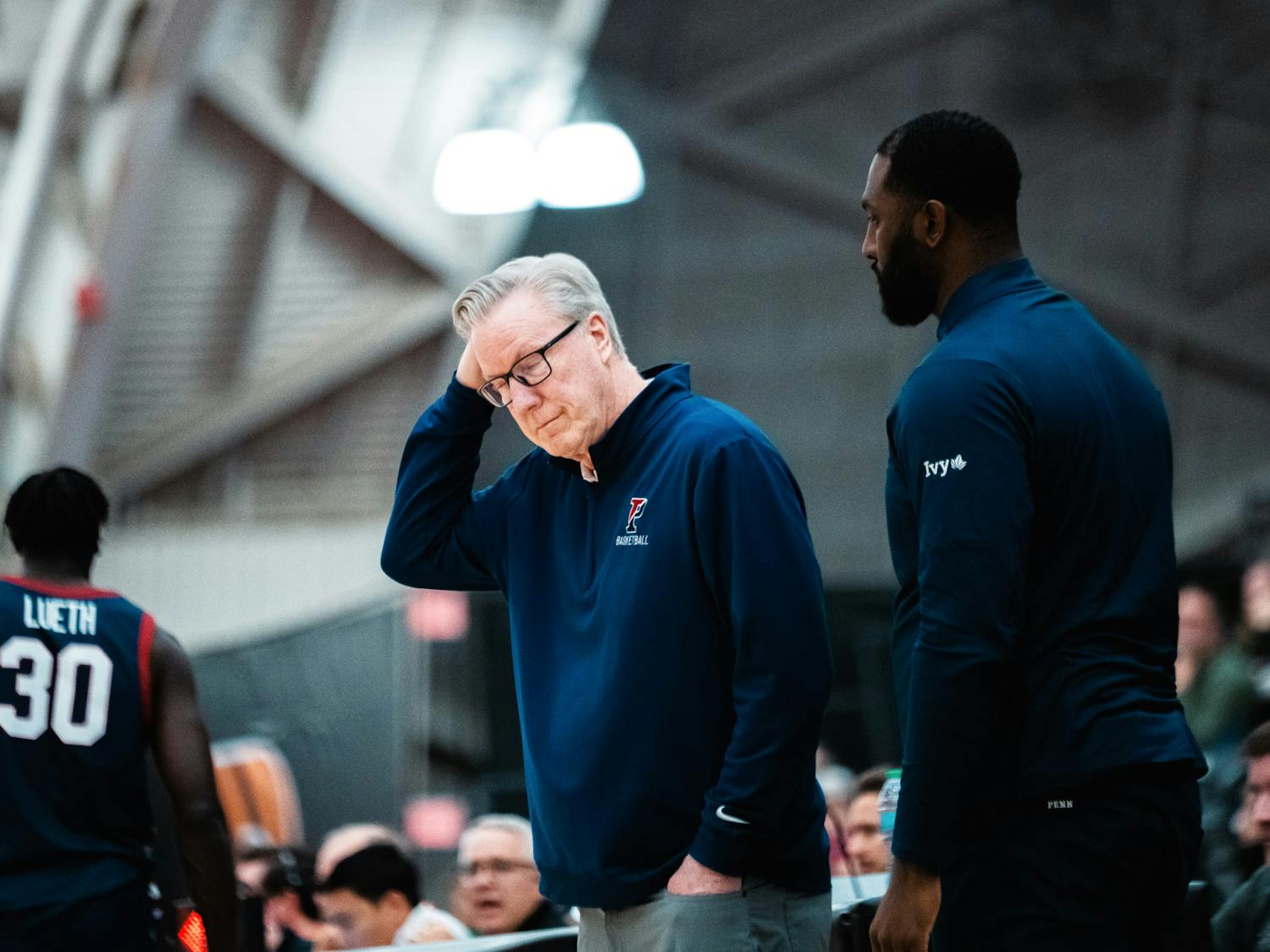The Ivy League finally landed a two-year television contract with NBC Sports Network earlier this month, the most important move in the Ancient Eight’s brief history of televised games. NBCSN will broadcast six to 10 football games, six to 10 men’s basketball games and up to four men’s lacrosse games annually. The deal continues through the 2014 lacrosse season.
But the Ancient Eight definitely missed a trick by failing to provide a national stage for its post-Penn/Princeton era.
Since its last conference deal for both football and basketball expired with YES Network in 2008, Cornell has reached the Sweet 16, Harvard has achieved unprecedented prominence and Jeremy Lin has represented the Ivy banner in the NBA in the most high-profile manner imaginable.
Unfortunately, the Ivy League did not have a national television platform to trumpet these moments.
Yet those basketball highlights have kept the Ivy iron warm. And now that a deal is in place, it is obvious that NBCSN is the best place for the league to be.
NBCSN is a network on the rise, relaunching as a member of the NBC family of channels in January after having been branded as Versus since 2006. The network has quickly gained momentum, with the channel’s NHL Stanley Cup Playoff viewership up 31 percent from last year.
The nearly 300 hours of Olympic coverage NBCSN will air this summer should introduce plenty of new viewers to the station, and having an 86-year-old brand name shouldn’t hurt either.
NBCSN is also targeting early season NFL Thursday night games for next year and could feasibly become a television rights holder for Major League Baseball in the next few years, as it aims to ultimately compete with ESPN.
Although NBCSN is not there yet, the Ivy League has nonetheless just hitched its wagon to a network that has enough momentum to carry it through its uphill ratings battle for the next two years.
Crucially, the Ivy precedent for emphasizing the kind of national presence which NBCSN should provide did not come from Penn. Instead it was Princeton who secured the most significant of the league’s contracts, with ESPNU, while each Ivy school controlled its own broadcast rights.
ESPNU has given Princeton national exposure in sports ranging from men’s basketball and men’s lacrosse to men’s water polo. Although Penn’s local TV deal with Comcast allowed more Quaker basketball games than Tiger basketball games to broadcast locally, Princeton gained more visibility than Penn with its national TV broadcasts.
Here’s what Penn Athletic Director Steve Bilsky told The Daily Pennsylvanian in September 2011:
“In my mind the future really is streaming … if [streaming] is good quality and is well produced and there’s replays and announcers and the whole bit, it will make TV secondary … That’s how we’re going to try to reach out to the masses.”
But television is not going to be secondary to streaming anytime soon in terms of visibility. Television still reaches young audiences in a big way, and viewers over age 35 are spending increasingly more time in front of TV sets, according to a February report from Nielsen — a company that tracks media use.
Meanwhile, it costs $7.95 per month and $59.95 for an entire season to join Penn Sports Network, the live video channel of Penn Athletics. The kind of pay-for-subscription service that Bilsky is championing for the future wouldn’t increase the visibility of Penn athletics for anyone other than students and alumni who are already likely to pay to watch Quaker sports.
How exactly is that “reaching out to the masses?”
But while Penn’s sports network can hardly be counted on to inject new life into Quaker fandom, NBC’s can. National television, not streaming, is what will keep conferences open for business in the future.
That’s why the SEC recently added Texas A&M and Missouri with an eye toward television outreach. The new additions secure a greater conference audience for the new SEC Network, paving the way for a developing agreement to put the network in every cable and satellite subscriber’s house. The Big Ten has a far-reaching TV deal with its own network that lasts through 2032.
Yeah, the Ivy League is not the SEC or the Big Ten. But just because the Ancient Eight transcends college athletics does not mean it should ignore broadcasting game changes in the NCAA landscape.
Aligning with NBCSN is the right step forward, but it has to be more than that. To maximize Ivy visibility, moves like the NBCSN deal have to be the future of Ivy media. Exposure has been lacking, and Penn athletics deserves a more mainstream mindset.
After all, doesn’t Penn’s next Zack Rosen deserve to star in every living room in America at least once in a while?








